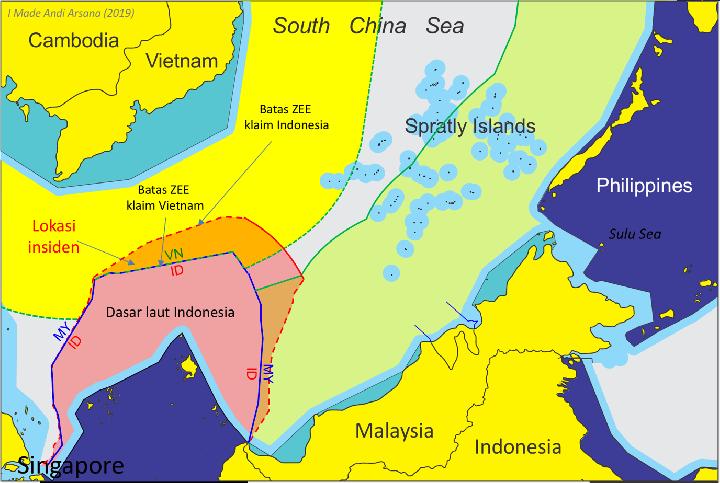
By: Claude Rakisits, an Honorary Associate Professor in the Department of International Relations at the Australian National University (ANU) in Canberra.
The China-Pakistan Economic Corridor promised plenty when it launched. Ten years on, Islamabad faces a sobering reality check of its true cost.
The ambitious USD$60 billion China-Pakistan Economic Corridor, which stretches almost 3000km from the port of Gwadar in Pakistan’s rugged southwestern province of Balochistan to Kashgar in the western Chinese region of Xinjiang, was launched 10 years ago this July.
Labelled a “game changer” by its backers, the 30-year project includes the development of Gwadar, laying gas and oil pipelines from Gwadar to China, the building of small dams and hydroelectric power stations, the upgrade and construction of roads and railroads and the development of numerous other projects, including a metro system in Lahore.
Once complete, the Corridor would be the jewel in China’s trans-continental trillion-dollar Belt and Road Initiative.
It would also give Beijing access to the Indian Ocean, effectively making China a two-ocean country.
But a decade since its launch, the project has become a severe burden on Pakistan, whose economy is staggering under the weight of massive foreign debt — a quarter which is owed to China.
While the economic activity this project generated contributed to a rise in economic growth in Pakistan from 2015-2018, the ongoing import of machinery and other construction material, without a commensurate increase in exports, and the repayment of the Chinese loans to finance the Corridor projects, have significantly worsened Pakistan’s balance of payments crisis.
Since 2016, Pakistan’s total foreign debt has almost doubled to a massive US$131 billion, with about a quarter owed to China.
Its interest repayments to China alone are crippling the country. Today, Pakistan’s central bank only has enough foreign exchange to cover at most a month’s worth of imports.
The country is in the process of negotiating with the International Monetary Fund for the release of over USD$1 billion of a USD$6.5 billion bail-out package.
But the situation is so grave that Pakistan has had to recently borrow another USD$1 billion from China to help tie over the country financially.
A culmination of factors can explain why the Corridor didn’t deliver the economic shot in the arm Pakistanis were hoping for.
For starters, China brought its own labour and housed them in isolated colonies, away from locals. Nobody knows how many thousands of Chinese workers are in Pakistan today.
All the construction sub-contracts that Pakistani businesses had been hoping for and the employment they would generate have not materialised. This has created tension with local communities.
The port of Gwadar — leased to the Chinese government for 40 years in 2017 — has not delivered the maritime traffic everyone had been banking on.
The plan had been to deliver a mega-port which would be a gateway to Central Asia. Instead, Gwadar’s port is under-used, isolated from its direct environment, in a neighbourhood actively threatened by violent separatist Baloch terrorists.
Local Baloch militant groups are not the only ones who have threatened and killed Chinese workers.
The Afghanistan-based Tehreek-i-Taliban Pakistan, which has increased its activities throughout Pakistan since the recapture of Kabul by the Taliban in August 2021, has regularly attacked Chinese targets.
The most spectacular was in far northwest Pakistan in July 2021 when nine Chinese workers were killed.
The attacks come despite the fact that 15,000 military personnel, as part of Pakistan’s Special Security Division and the Maritime Security Force, have been raised specifically to protect Chinese personnel and the 34 CPEC-related projects along with the port of Gwadar.
China is upset with these attacks and has put a lot of pressure on Pakistan to rein in the group. However, given the Taliban’s close ideological relationship with the group, Kabul has ignored the call from Islamabad for it to hunt down militants hiding in Afghanistan.
Accordingly, given Pakistan’s poor security and economic situation, it is no surprise to see that China’s level of investment in Pakistan has dropped in the last two years.
Notwithstanding these serious complications in the implementation of the Corridor and the ongoing security situation in Pakistan complicating an already difficult investment environment, China has invested too much in its relationship with Pakistan over the last 60 years for it to abandon the project or loosen its ties with Pakistan for that matter.
Pakistan has played a critical geo-strategic role in China’s approach to countering India and expanding into the Indian Ocean.
Similarly, Beijing has been a consistent supporter in Islamabad’s stance on Indian-administered Kashmir. Each nation has gained from that relationship.
Accordingly, the implementation of the China-Pakistan Economic Corridor will continue to stumble along, and eventually — probably a cut-down version of it — will likely be completed.
But whether the Corridor will have been in Pakistan’s long-term national interest remains to be seen.
Originally published under Creative Commons by 360info™.
*) DISCLAIMER
Articles published in the “Your Views & Stories” section of en.tempo.co website are personal opinions written by third parties, and cannot be related or attributed to en.tempo.co’s official stance.





















